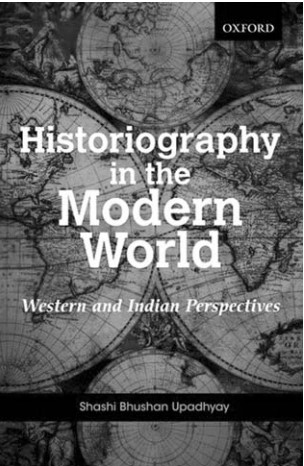Shashi Bhushan Upadhyay’s Historiography in the Modern World: Western and Indian Perspectives is a brilliantly compiled book, a re-view of the whole trajectory of historical thinking, sometimes based on primary sources and at times on secondary texts. Upadhyay’s book not only records history as an objective area of study, it also documents the history of historical methods. Unlike what the title suggests, the book is not only an exploration of the concept of historiography focusing on modern times, it also looks into the evolution of the concept from pre-modern to the modern times. However, as the author suggests, one has to make a distinction between the past, history and historiography. Not all the events or occurrences of the past can be called history, nonetheless, history is the record of the past (p. 1). Therefore, if the past is the objective reality of an old time, history would be the record or the representation or mediation of such reality from the perspective of the present. Whereas, the term historiography would mean three things—firstly, history in general, secondly, critical study of historical works, and thirdly, a particular field of historical scholarship (p. 9). Therefore, historiography can very well be distinguished from what is considered to be history, nevertheless, they complement each other. In other words, one can say that it is historiography which makes the past intelligible through history.

Exploring The Evolution Of A Concept
Rajat Roy
Historiography In The Modern World: Western And Indian Perspectives by By Shashi Bhushan Upadhyay Oxford University Press, 2016, 794 pp., 1495.00
May 2017, volume 41, No 5
